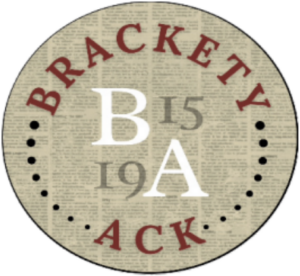Earlier last month, on September 12th, a group of Alumni sent a letter to Roanoke College President Frank Shushok expressing concern over the apparent lack of transparency and information surrounding the environmental testing on campus. The college issued a statement late last term addressing an Air Mail article that had been published about Roanoke College allegedly causing cancer in former students and faculty. Since then, there has been relatively little information from the administration of the college about the progress of the testing.
Frank Shushok sent a letter to the Roanoke College community on May 28, 2024, in response to the circulation of the Air Mail article. In this letter, he said “the health and safety of all those who call Roanoke College home has always been the single most important priority of this community; it remains so today.” He also promises later in the letter that the administration will be “transparent every step of the way” which many of the concerned alumni now believe to be untrue or at least not followed through with. Many alumni are also worried about the way in which Roanoke College went about testing, with it not being finished before students, faculty, and staff arrived in late August.
Testing began the week of July 22nd. The testing was conducted by “Engineering Consulting Services (ECS) Mid-Atlantic, a national, EPA-accredited environmental services company” and consisted of “sampling for lead, radon and sub-slab vapors.” The last update from the administration was on August 30th, where they said “analysis is ongoing and we await final results” from the testing which they are expecting this month.
The Alumni letter, sent to the Brackety-Ack from an anonymous source, cites multiple key points the former students feel are unaddressed by the college. The first point is the status of the promised testing. The alumni are seeking clarification on what the current status of the on-campus testing and the results of that testing are. They are asking if there are any findings that they be shared with the entire college community. The second point is the status of the supposed independent testing. They are also asking for clarification and more information on this. The last point in the letter is the communication and education plan going forward. This group is seeking increased transparency about the environmental testing in relation to carcinogens and other environmental hazards. They express concern that these points are not being addressed as quickly and effectively as they potentially could be.
This letter was signed by 192 former students and other members of the Roanoke College community, whose graduation dates range from 2004-2024. This issue is not only important to those former students, but also to current students, faculty, and staff on campus. Faculty are specifically concerned about Miller Hall, which was the location of offices for three faculty members who have died due to cancer. In the last faculty meeting, this topic was apparently brought up by Roanoke College President Frank Shushok. In his announcement about updates he said that the residence hall testing was almost done, and invited Ben Irvine to discuss the matter further. Faculty were specifically concerned about Miller Hall, which was the location of offices for three faculty members who have died due to cancer. According to the BA sources, it was then stated that testing is almost done, and high mold counts were found in three locations. Despite this, the administration does not plan to share full PDF’s of the scientific data due to fear that the public will misinterpret or misuse the data.
A letter was sent back to Chloe Svolos Baldwin ‘15, who has been one of the most active alumni concerned about the alleged cancer cluster. This letter contained similar things to what was discussed in the faculty meeting, though perhaps with more diplomatic language. This letter did not appear to address the root issue of the timing of the testing and the transparency the administration might use moving forward.
Mikaela Gantz
Editor-in-Chief
Source: Anonymous and Roanoke.edu




